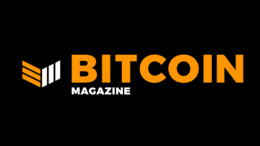
Can a Math-Based Currency That Exists Only Online Succeed?
The main attraction of Bitcoin has always been that it is not an institution, an organization, or any sort of centralized entity. Since there is no central authority, it has thrived due to its transparent and hassle-free nature for both buyer and seller.
The mixed news and reviews of Bitcoin leave the public to wonder: Is Bitcoin/bitcoin on its last legs, or will it become a part of the mainstream payments infrastructure? Is there really a need for another currency or payments system? What problems does this new currency solve compared to existing currencies that are already regulated and accepted by the world at large today?
Mercator Advisory Group’s new Research Note, Bitcoin Basics, Trends, Regulations, and Usage, discusses basic definitions, principles, and history of this virtual currency, diverging opinions on its merits and future, and the emerging trends and technologies impacting this form of payment. The Note focuses both on Bitcoin’s short-term challenges and long-term viability in the United States and various global markets.
“The main attraction of Bitcoin has always been that it is not an institution, an organization, or any sort of centralized entity. Since there is no central authority, it has thrived due to its transparent and hassle-free nature for both buyer and seller. While the governments of the United States, United Kingdom, or European Union are not likely to shut down Bitcoin, rules and regulations will likely be imposed as the digital currency’s popularity continues to grow in select markets around the world,” comments Pradeep Moudgal, Director, Emerging Technologies Advisory at Mercator Advisory Group and author of the note.
Highlights of this Research Note include:
- Features and principles underpinning Bitcoin (blockchain, mining, exchanges, etc.)
- Differences between fiat currencies and virtual currencies
- Review of technologies to enable bitcoin usage including Bitcoin wallet, bitcoin conversion ATMs, Google Glass, and Square
- Regulatory trends and long-term viability in the U.S. and select global markets
- Scenarios for Bitcoin’s likely future fate as a payments instrument
Companies mentioned in this Research Note include: Bitcoin Foundation, Coinbase, Eaze, eBay, Google, JP Morgan Chase, Liberty Tower, MasterCard, Overstock.com, RedBottle Design, Robocoin, Sacramento Kings, Square, Tesla, Virgin Group, Visa, Wells Fargo Bank, and Xapo.
This Research Note contains 19 pages and 6 exhibits.
Members of Mercator Advisory Group’s Emerging Technology Advisory Service have access to these reports as well as the upcoming research for the year ahead, presentations, analyst access, and other membership benefits.
About Mercator Advisory Group
Mercator Advisory Group is the leading independent research and advisory services firm exclusively focused on the payments and banking industries. We deliver pragmatic and timely research and advice designed to help our clients uncover the most lucrative opportunities to maximize revenue growth and contain costs. Our clients range from the world's largest payment issuers, acquirers, processors, merchants and associations to leading technology providers and investors. Mercator Advisory Group is also the publisher of the online payments and banking news and information portal PaymentsJournal.com.
For free industry news, opinions, research, company information and more visit us at http://www.PaymentsJournal.com/
Follow us on Twitter at http://twitter.com/MercatorAdvisor.
Related News




